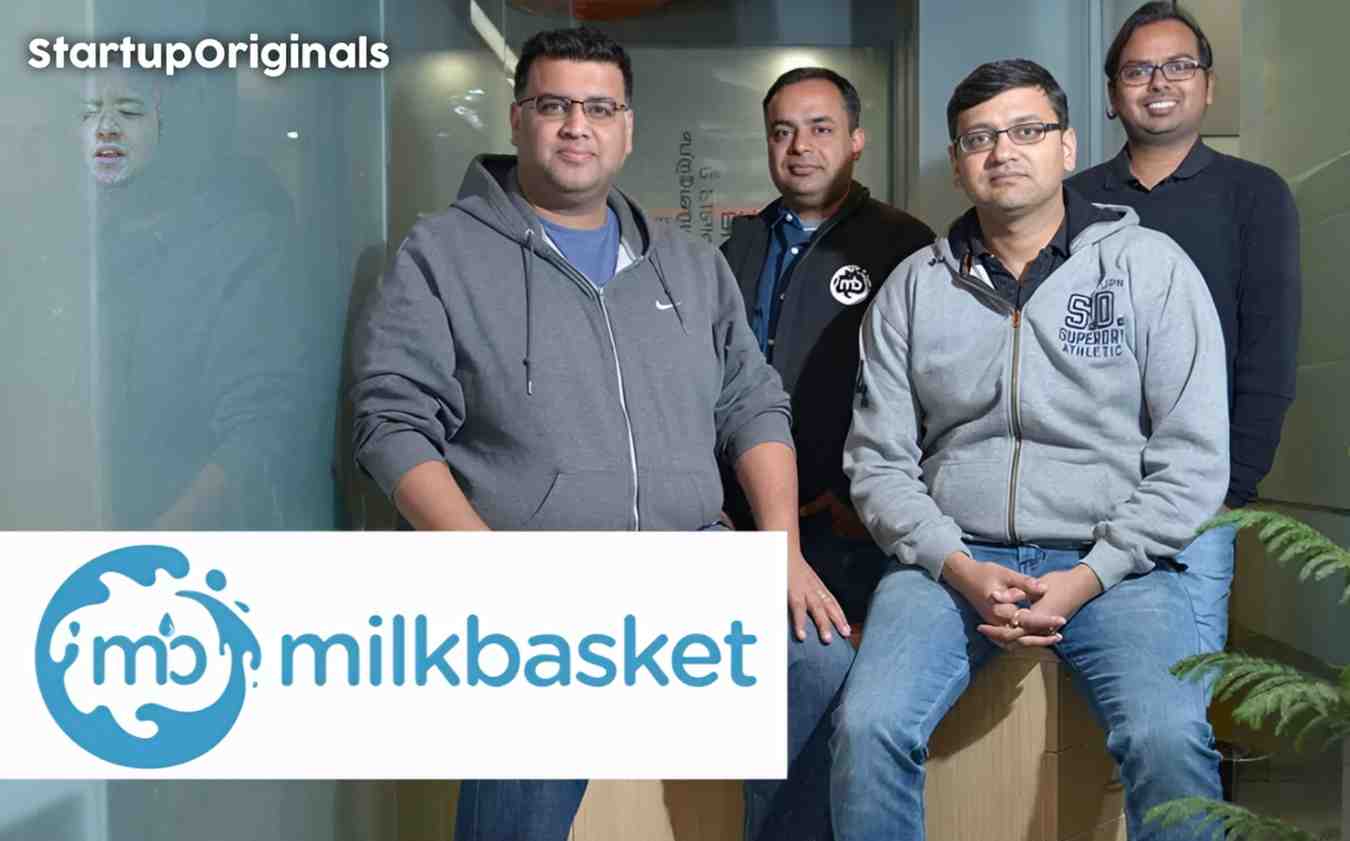
Milkbasket began in 2015 with a simple idea: deliver fresh milk and daily essentials to people’s doorsteps early every morning. Over time, this Gurugram-based startup scaled rapidly, expanded its offerings, achieved strong growth, attracted major investment, and was eventually acquired by Reliance Retail. This is the story of how Milkbasket built up its operations, overcame challenges, and became a key player in India’s hyperlocal grocery delivery space.
Founders & Company Beginnings
Milkbasket was founded in 2015 by four people: Anant Goel, Anurag Jain, Ashish Goel, and Yatish Talavdia. Their base was in Gurugram, Haryana. The founders were inspired by models they had seen abroad, especially services that delivered groceries and daily items early in the morning. The idea was to reduce friction for consumers who always needed certain products first thing in the day.
Starting out, orders were very simple. The founders themselves would deliver milk using their personal vehicles. As demand picked up, they brought in autorickshaws and eventually built their own delivery fleet. The initial customer base was small, in April 2015 they had just ~22 customers-but by June of that year, they had over 30,000 customers in Gurugram alone.
Business Model & Offerings
Milkbasket operates on a subscription-based micro-delivery model. Customers can place orders for everyday dairy items, bread, eggs, butter, juices, and basic groceries via an app, usually ordering before midnight so delivery happens early morning (by about 7 a.m.).
Payments are prepaid, users top up a mobile wallet in the app; there is no on-delivery payment. The company earns revenue through delivery charges, subscription fees, and commissions on transactions.
Growth & Revenue Performance
Milkbasket saw rapid growth over its early years. In FY 2020, it achieved revenue of approximately ₹322 crore (around US$42.5 million) from operations. That same year it recorded significant growth in revenues compared to prior years. However, its expenses also rose, and in FY 2020 the company had losses of about ₹15.7 crore.
Despite the losses, the business had positive unit economics within about six months of operations. It managed to reach many households, scale orders, and was delivering over a million orders in several cities, which included Delhi, Bengaluru, Hyderabad, Ghaziabad, Noida, Bengaluru, Gurgaon and more.
Funding, Investors & Acquisition
Over 11 funding rounds, Milkbasket raised approximately US$78.5 million from investors which include InnoVen Capital, Inflection Point Ventures, Mayfield Capital, Kalaari Capital, Blume Ventures, and others.
In October 2021, Reliance Retail Ventures Ltd acquired a 96.49% stake in Milkbasket’s parent company, Aaidea Solutions Pvt Ltd, effectively making Milkbasket part of the Reliance group.
Challenges Faced & Competitive Landscape
Milkbasket operated in a competitive hyperlocal and grocery delivery market, with players such as Supr Daily, DailyNinja, BigBasket, Grofers, Zomato, Swiggy, among others. Competition forced tight margins, high delivery expectations, and operational complexity.
Another key challenge was managing capital and expenses. While growth was rapid, losses persisted, especially as orders surged and operations expanded. Cash flow, logistics, delivery infrastructure, and customer satisfaction had to be continuously managed to maintain reliability.
Vision, Mission & Future Plans
Milkbasket’s mission has been to become the “default mom and pop shop” for millions of households, making it easy for people to get everyday essentials without having to visit stores. The model emphasized cost-efficiency and early morning delivery as differentiators.
After the acquisition by Reliance, the company has been looking to achieve profitability. There was also ambition to go public (IPO) in the near future, though as of the last reports, that had not yet happened. Furthermore, integration into Reliance’s broader ecosystem and super-app strategy offers potential for broader services and scale.
Conclusion
Milkbasket’s journey shows how focusing on a reliable, niche need, fresh daily essentials-and delivering well (literally in the early morning) can build strong customer loyalty. Despite challenges with costs and competition, Milkbasket’s high growth, investor confidence, and eventual acquisition by a major conglomerate highlight the viability of hyperlocal grocery models in India. Its future will depend on reaching profitability, sustaining service quality, and leveraging its place within Reliance to scale further.



